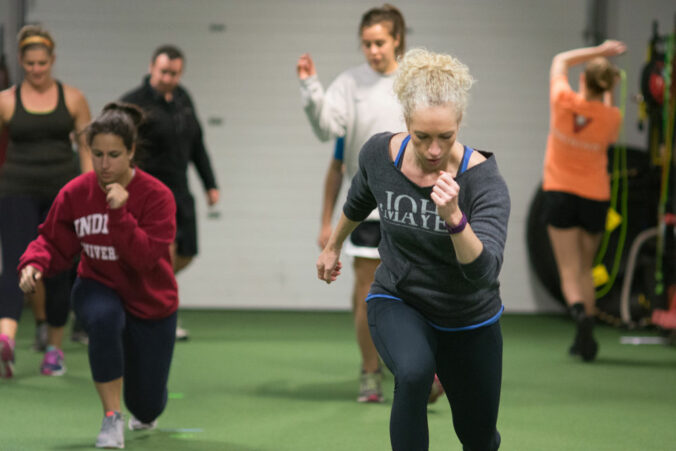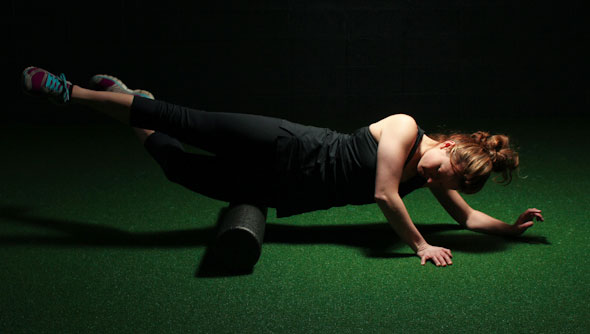BACKSTORY: I recently gave one of my new clients the All 4 Belly Lift to do for homework.
This exercise is one I learned about from the Postural Restoration Institute, whom I highly recommend. But if you’ve been reading here for a while, you already know that (exhibit one, two, three, four, and five).
He was already familiar with the exercise and the above video I sent him, but wanted to know the difference between something like this and just doing a toe touch or sit and reach and breathing?
The All Four Belly Lift is a way to take a few degrees of freedom (a.k.a. compensation options) out of the equation. What I mean by that is being on your knees limits your ability to use your ankle to avoid expanding through your back and tucking your pelvis underneath you.
This exercise is also a way to inhibit your back side and teach your front side to turn on. Specifically, it’s really good for helping someone feel their abdominals working, helping them get all the air out, shutting of spinal extenders, and opening up the back of the hips.
A toe touch and sit and reach breathing can also accomplish these things. I like the belly lift because I think it’s easier to cue someone to keep their neck muscles off.
With the other two, you’re putting the hamstrings on a stretch. That’s fine for some, but for people who have extra flexibility in their hamstrings (most lifters, including you), they will get a lot of this motion from their hamstrings, not pull their pelvis underneath them.
For these people to get the motion of the exercise, they will tend to reverse their spinal curve. That is, their lumbar spine flexes and thoracic spine extends. If this happens, we’re actually accomplishing the opposite of what I want. See drawing below if it helps.

I know, it’s beautiful. One of my science classes last semester was in the art building, so I’m an artist now.
The same kind of thing can happen with the toe touch. One thing that the toe touch offers that the other two do not is the sensation of the feet in the ground. Being able to hold a toe touch and breath is a progression in terms of complexity, but a regression in terms of how much strength one needs to perform the exercise correctly. Most lifter types need a little bit of external load to overcome to help them feel the positions that I want them to achieve. This is why I tend to dole out more all four belly lifts than the other two variations.
They all can be effective, but there are differences to consider.




